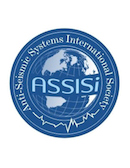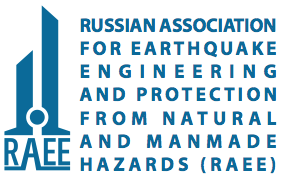Full papers must be submitted electronically by February 01, 2019, using the online submission feature available at here.
The submission of full papers will be enabled in early September 2018. The Submitting Authors of accepted abstracts can access the paper submission feature by logging in using their Username and Password obtained during registration and abstract submission. The Abstract, Title, Authors details and Selected Topics can be updated, if needed. The optional selection of ‘Oral’ or ‘Poster’ presentation is also provided with the submission of the full paper.
All Submitting Authors must register as full conference delegates (or students if applicable) to submit a full paper. An advance payment of 150 dollars per paper (pre-registration) must be made through the conference platform prior to the full paper submission to ensure the appearance of the paper/papers in the conference proceedings. The advance payment will be fully deducted from the conference fees of the registered author, or will be fully refunded in case of paper rejection. The payment must be made online at the registration page here.
The pre-registration will be enabled by end of August 2018. The online paper submission feature will prompt you to register as a delegate, if you have not done so before uploading your paper.
The 16WCSI Local Organizing Committee will review all papers for clarity, technical merit, and relevance to the conference topics. Our goal is to inform corresponding authors on their paper’s acceptance decision by January 10, 2019, and possibly before. In cases where the reviewing team feels revisions are necessary, comments will be provided with revised papers.
To ensure that a paper meets the conference's presentation requirements, an MS Word Paper Template & Guidelines file has been prepared and is available here. All authors must follow these guidelines to help ensure presentation uniformity in conference proceedings; submissions that do not follow the prescribed formatting guidelines will be returned.
The Ethical Principles of 16WCSI
The 16WCSI Scientific Committee strictly adheres to and encourages all authors to comply with the «Ethical Principles of Scientific Publications» Declaration adopted at the ASEP assembly, held within the framework of the 5th International Scientific-practical Conference «Scientific Publication of International Level-2016: Solving Problems of Publishing Ethics, Reviewing and Preparation of Publications», Moscow, May 20, 2016 (revision 2016).
Declaration was developed by the Association of Scientific Editors and Publishers (ASEP) as a set of ethical principles governing the conduct of editors, editors, reviewers, publishers and authors in the field of scientific publications. The text of the Declaration is intended to be used as a whole and each of its individual provisions should be applied taking into account all other applicable provisions.
Individuals involved in the scientific and publishing process seek to follow the principles of the Declaration as well as the recommendations of the Committee on Publication Ethics (COPE) and other international associations of editors and publishers.
ASEP sees the purpose in forming at the scientific community a clear idea of publishing ethics, open and unequivocal condemnation of unethical behavior and the complete rejection of any cooperation leading to the production of "junk" publications, hindering the development of science in general.
Basic principles:
Ethical standards of the Editorial Board and scientific Committee. The editorial team of the conference proceedings in its activities is guided by the principles of scientificity, objectivity, professionalism, impartiality.
Responsibility for ethical compliance. Researchers, authors, editors, reviewers and publishers have an ethical obligation to publish and disseminate research results.
Norms of communication with authors. Interaction with the authors is based on the principles of fairness, politeness, objectivity, honesty and transparency.
The presence of the institute of reviewing. All contents of the conference proceedings, except advertising clearly marked as such, are subject to mandatory peer review by independent experts (open, blind, double-blind). Double-blind peer review is preferred.
Access to publications. Сonference Scientific Committee guarantee access to publications, providing storage of materials in the leading libraries and repositories of scientific information.
Information openness. On the site of the conference at the Internet information about publication ethics and peer review is published, policy, rules for submission of manuscripts, instructions for authors and information on the availability of materials (free access or by subscription) are clearly formulated. The ISSN and the address of the publisher are obligatory details.
Compliance with ethical criteria of authorship. 1. Only a person who was largely involved in the writing of the work, in the development of its concept, in scientific design, material collection, analysis and interpretation can be the author; 2. The consent of all authors to the publication is obligatory. All co-authors must meet these criteria.
Coordination of the final text of the article with the author. Publication of the article under the author's name implies the emergence of copyright. The publication of a text not agreed with the author, as well as the inclusion of third parties in the number of co-authors, is a violation of copyright.
Interaction with scientific and professional associations. Editors strive to interact with professional scientific associations and industry communities in order to ensure the high quality of scientists' work.
Prevention and correction of ethical violations. It is the duty of scientific editors to prevent situations when authors, reviewers or other entities involved in the production of scientific texts carry out unethical behavior, as well as to ensure the removal of unscrupulous publications from the scientific space, to cooperate with the Ethics Council and scientific associations.
Conflict of interest. Editors encourage authors to disclose relationships with industry and financial institutions that could lead to conflicts of interest. All sources of funding should be indicated by the authors in the body of the article
ASEP recognizes the following as unethical behavior in the field of scientific publications:
-the requirement for authors to provide their own reviews of their articles, as well as contractual and pseudo-censorship. This practice implies no review in the conference proceedings.
-sale of co-authorship, gift co-authorship, change of authors. It is a violation of copyright and ethical standards to list as authors persons who have not made an intellectual contribution to the study, as it not only misleads readers, but also is regarded as fraud.
-manipulation of the citation. Artificial increase in scientometric indices, excessive self-citation and friendly citation, irrelevant references mislead readers and are interpreted as fraud.
Plagiarism, falsification and fabrication. The editors work in good faith with the texts of articles, preventing the appearance of unscrupulous scientific publications containing plagiarism, falsification and fabrication of data on the pages of their publications.
The Board of Ethics
The Board of Ethics formed under the Association of Scientific Editors and Publishers is recognized as a coordinating and advisory body within the framework of this Declaration.
The Declaration prepared by the ASEP Board of Ethics:
Kuleshova V. A., Kochetkov D. M., Abramov E. G., Abalkin A. A., Belyaev D. A., Stepanyan A. S., Maleshin D. Y., Nosov D. M., Repetskaya A. L., Rostovtsev A. A., Filippov Yu. I., Shishlakovykh O. S.
The development was attended by ASEP President Kirillova O.V.
For queries about submission, please contact us at submission@16wcsi.org.









